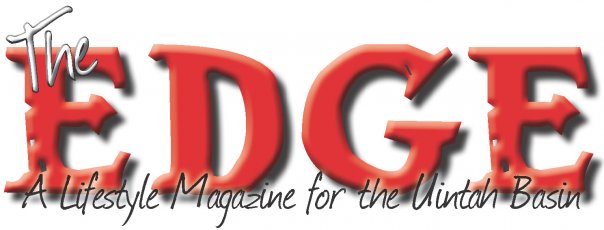By: Jennifer Rook
We are happy to debut this latest feature; "The Basin's Dirtiest Jobs". We hope to highlight some of the dirtiest jobs in the Basin and introduce you to some of the hard working folks from our community who get dirty every day or have to deal with undesirable substances, perform nasty tasks or deal with all manner of muck, slime, dirt, guts, oil; you name it. If it's a Dirty Job, we want to tell you all about it.
DWR Technicians, Specialists & Officers
Managing big game, whether it is alive, dead, dying, injured, or a safety issue, can be a very nasty job. Not every task associated with the job is "nasty" or "dirty" in the literal sense of the word, but wrangling big game, humanely dispatching injured animals, scraping up road kill, and removing problem animals has plenty of "nasty" and "dirty" associated with it. It's all in a day's work for Conservation Officers, Depredation Technicians, and Landowner Specialists who work for the Division of Wildlife Resources.
Motorists account for a large number of big and small game deaths each year. Ron Stewart, Outreach Manager for the DWR Northeastern Region in Vernal says that even though our main highways are found on the benches, which are typically winter and/or transitional ranges, road kill can occur year round and depending on the road it's on, the job of removing road kill can and does fall upon the shoulders of the DWR technicians, officers and specialists.
Stewart says it's never a fun job, but winter road kill is much more pleasant to pick up than summer road kill. "Winter is better than summer as the animal will likely freeze overnight. Summer temperatures can cause an animal to rot and melt down before someone can get to it to pick it up." he relates with a grimace. Generally, road kills are picked up and hauled to a land fill, but sometimes further testing may be necessary to check for diseases, parasites or Chronic Wasting Disease.
Dealing with dead animals is all part of the job for DWR employees. Anytime an officer or biologist discovers a dead animal, he or she looks for signs of how that animal died. Sometimes a technician or officer will have to dig a bullet out of a carcass or maybe run a metal detector over the rotting animal to find the bullet. Other tests to determine cause of death may include cracking some of the larger bones open to look at bone marrow. Other parts of animals that get checked over include the eyes, ears, neck and internal organs. Also, every deer hunting season DWR employees stop hunters at checkpoints to take lymph node samples from the neck to check for CWD.
Often times DWR workers are put to the task of humanely dispatching injured or problem animals. Animals get caught in fences quite frequently, are mortally wounded during hunting season or by poachers, don't always die instantly when struck by vehicles, or fall into water holes and drown. Anything can happen, but the task of putting the animal down is usually handed off to a DWR employee. "Putting animals out of their misery is actually a kindness we can do for them, but it about breaks my heart every time I see an animal suffering." says one retired Depredation Technician. "I never liked having to kill animals, but I couldn't see them suffer either. That about killed ME."
Removing problem animals is pretty tricky business that can turn nasty and dirty for a DWR worker in an instant. Bears in traps can be angry, dangerous animals. Bears in trees often have to be darted and sometimes tracking problem animals down is a major task. Stewart recalls a particular wiley bruin. "We had a call of a bear in town, over by Wal-Mart. It actually ran down the middle of the road and eventually made its way out to Maesar. We had half the Division out looking for it, a lot of law enforcement officers and other volunteers. Eventually the bear went up a tree and we were able to dart him, but it took us a good 4 or 5 hours chasing him through thick brush and undergrowth and tricky places before we found him." Luckily for that bear he wasn't a problem and was merely passing through town. He was successfully released in the Book Cliffs, south of Vernal and lived to tell the tale.
Trapping animals for relocation is common practice for DWR employees, but the intended target is not always the one who gets caught in the trap. Skunks and other small game may be in the traps and sometimes an even meaner adversary is discovered; raccoons. "Raccoons, when cornered, are very mean, especially the big males." says Stewart. "They are really nasty. They have a vicious bite and they're quite agile. Fortunately we're not really trying to capture and release those animals so we don't have to deal with them on a daily basis, but there are times we come across them and it isn't pleasant."
Whether it's lifting a 1,000lb moose for relocation, capturing an injured hawk, digging through a rotting elk carcass, or dealing with an angry coon, DWR employees definitely have one of the Basin's Dirtiest Jobs. These people are also vital to the success of our big game herds, small game populations, habitat and the health of the wildlife we enjoy. Hopefully we can also gain a new understanding and appreciation for all the often-unpleasant functions these people also shoulder to make our everyday life more enjoyable, safer and often cleaner. Thank you, DWR employees for all the dirty work and the awesome "clean" work you do too. We salute you and officially crown your job as one of the Basin's Dirtiest.
If you have ideas for "Dirtiest Jobs" please send them to jennifer@theedgemagazine.org with contact information if you've got it.

No comments:
Post a Comment